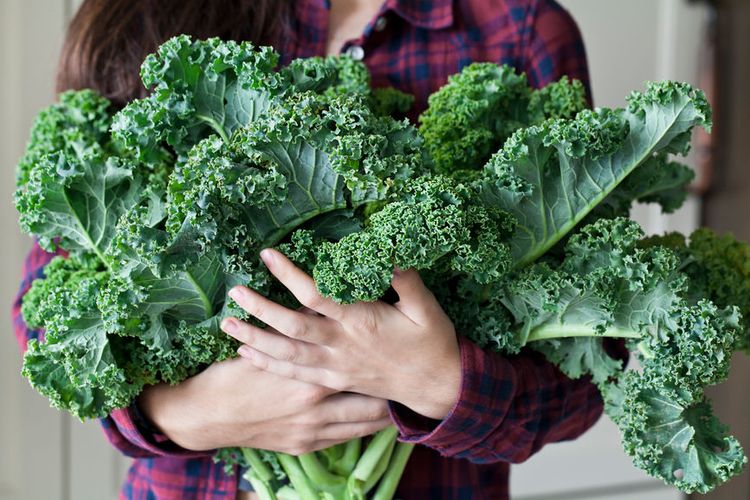Do you live with ADHD, depression, back pain, brain fog, leaky-gut, Crohn's disease? Or do you want to get on top of your health and wellness overall? Nutrition is a great place to start.
In this article, we will go over nutrition, how it works, what complete nutrition is, its benefits, provide an overview of common diets and how nutrition can help different conditions. Let's get started . . .
What is Nutrition?
That's a great question! We know it's about nourishing our bodies and the science of food. We also know there's quite a lot of confusion about what to eat and why to eat it. But what we know for certain: nutrition is one of the most powerful healing tools we possess. Changing your diet can make a substantial, even dramatic improvement in your health, your life, and your longevity.
Nutrition Information the Changes
Yes, nutrition advice changes. Eggs are bad. Eggs are good! Fat makes us fat. No, healthy fat doesn't! But here's another way to look at nutrition science: it's an exciting, dynamic, ever-evolving process of discovery, that has gradually led to a rather profound conclusion which is we're all different, and each of us is best served by a nutrition plan unique to our needs.
The future focus will be on precision nutrition, incorporating our own genetic makeup, health history, lifestyle factors, mindsets, belief systems, and relationships - because nutrition doesn't exist in isolation from us as whole persons. All factors leading to wellness or disease are combined and consequential, and nutrition is a key piece.
And the future is now. Qualified integrative and functional nutritionists can help you explore your unique health history, genomics, terrain, lifestyle factors, emotional status, and mindset to design a nutrition plan to help treat chronic disease and optimize your health
How Does Food Nourish our Bodies?
Are you wondering, why is nutrition important? What you chose to put on the end of your fork matters. Food provides our cells with energy and information. A diet rich in antioxidants and other phytonutrients, and low in pesticides and toxins can protect our DNA from damage and, by keeping our cells well-nourished, promote health and longevity.
Food molecules and sunlight provide the energy needed to power all our cell functions, including growth, metabolism, detoxification, and reproduction. While we've known this for some time, research and evidence-informed nutrition therapy are constantly expanding our knowledge and awareness about what constitutes healthy nutrition and why it matters.
What is Complete Nutrition?
The two basic categories of essential nutrients for human health are macronutrients and micronutrients.
Macronutrients the First Essential Nutrients for Complete Nutrition
Macronutrients are energy-yielding proteins, carbohydrates, and fats that are required in relatively large amounts on a daily basis. There are three types of macronutrients:
Proteins: Proteins are the first type of macronutrients. The word "protein" comes from the Greek proteios, or "primary"., homage to protein's significant role in our body. Importantly, proteins grow, heal and defend our bodies internally on a constant basis.
We need protein daily to serve many parts of the body. Proteins are essential functions to the structuring and creating of five different bodily elements:
1. Hair
2. Muscles
3. Nails
4. Tendons
5. Ligaments
Proteins also function as the following for the human body:
1. Enzymes
2. Hormone
3. Components of our genes
Carbohydrates: Carbohydrates are the second type of macronutrients needed for complete nutrition. The body?s main source of energy is carbohydrates. Carbohydrates are compounds occurring in the sugars, starches, and cellulose found in fruits, grains, vegetables, and milk products.
The question with carbohydrates isn't: Are carbohydrates good or bad?
The question is: Which carbohydrates are good or bad?
The answer? It's an easy one. Eat real food, as close as possible to its natural state, not food-like substances. An orange, rather than orange juice or orange-flavored vitamin water. Broccoli and whole grains, not bagels, pasta and pizza.
Fats: Fats are the third type of macronutrients. It was previously maligned as a macronutrient. It has now earned fresh respect!
Rather than causing weight gain, healthy fats lower bad cholesterol, kick-start metabolism and balance weight, and nourish our brain's tissues and cells.
Here is a list of ten great sources of healthy fats:
1. Avocados
2. Grass-fed butter
3. Grass-fed ghee
4. Coconut oil
5. Olives
6. Extra virgin olive oil
7. Salmon
8. Sardines
9. Nuts
10. Seeds
Micronutrients the Second Essential Nutrients for Complete Nutrition
Micronutrients are essential elements required in trace amounts for normal growth, metabolism, and physical well-being. Wondering, what vitamins promote good nutrition?
According to one study, in The Genetics of Vitamin C Loss in Vertebrates, There are many vitamins and minerals our bodies can't manufacture in sufficient amounts to meet our needs.
Here is a list of some of those minerals and vitamins that the human body cannot create and what they do for the body:
- Improve immune function:
- Vitamin B6
- Vitamin C
- Vitamin E
- Magnesium
- Zinc
- Help absorb calcium and promote bone growth:
- Vitamin D
- Nourish nerves and blood cells:
- Vitamin B12
7 Other Vitamins that cannot be created by the human body alone:
1. Vitamin: A
2. Vitamin: B1
3. Vitamin: B2
4. Vitamin: B5
5. Vitamin: B7
6. Vitamin: B9
7. Vitamin: K
Kathie Swift, MS, RDN, author and co-founder of the Integrative and Functional Nutrition Academy, says, "My formula for healthy eating and healthy weight loss is pretty simple..."
"Consume as many micronutrients as you can and no more macronutrients than you need. Too many empty calories mean weight gain and inflammation. The road back to health and healthy weight is lined with nutrient-dense food, especially vegetables!"
Kathie Swift offers 2 additional categories that she describes as crucial to complete nutrition health. . .
Phytonutrients and its Role in Complete Nutrition
Phytonutrients are chemicals that are naturally formed in plants in response to environmental threats such as germs, fungi, and bugs.
Remarkably, these chemicals protect the plants in the field, and humans when we eat them.
7 Health Conditions that are Helped by Phytonutrient in Fruit and Vegetables
Vegetables and fruits contain many disease-preventing phytonutrients. Phytonutrients being an important part of complete nutrition serves to help the body with the following seven conditions:
1. Memory
2. Hypertension
4. Stroke
6. Depression
7. Fatigue
Fiber and its Role in Complete Nutrition
Fiber is the edible parts of plants: fruits, vegetables, grains, nuts, seeds, and legumes - that can't be digested and arrive relatively intact in the large intestine.
Research on the microbiome has shown that this type of fiber is favored by beneficial microbes. These microbes extract extra energy and nutrients from the fiber, especially short-chain fatty acids linked to decreased inflammation and obesity and improved immune functioning.
The standard American diet is deficient in both phytonutrients and fiber.
Not having enough fiber in the diet may be one reason why when people increase the number of vegetables in their diet they so often notice rapid improvements in how they feel.
10 Excellent Sources of Fiber When Seeking a Complete Nutrition Diet
Here is a list of 10 excellent (and delicious!) sources of fiber:
1. Avocados
2. Blueberries
3. Blackberries
4. Raspberries
5. Dates
6. Almonds
7. Pistachios
8. Brussels sprouts
9. Fennel
10. Cabbage
Rainbow's are not just for after rainfall and colorful Skittles. And here is why . . .
Eating the rainbow is a great place to start when you want to increase the number of fruits and vegetables you eat in your diet.
By cooking with local, colorful, organic, fresh foods, you'll dramatically up your intake of health-promoting phytochemicals.
Focus on eating as many colors of the rainbow as you can every day, incorporating high-quality fats and clean, non-toxic sources of proteins.
Make every bite count! Avoid empty calories and instead fill up on delicious, nutrient-dense, satiating foods.
Save money by cooking at home, and save your health, too!
Water the Forgotten Factor of Nutrition
Consuming and eating healthier, eating the rainbow, and reducing the about of processed foods is a great way of taking control of your health and nutrition. However, a factor of nutrition that is often overlooked and forgotten is water.
Next, to breathing, water is our body's most critical need! We need to keep replenishing that water for our organs and systems to work properly. In short: you really need to stay hydrated! Want to more? Want to have a full understanding of water that the role water plays not only on nutrition but also the amount of water that is within the human body? Read more: Water and Its Vital Connection to Nutrition
Nutrition and the Role of Microbiome
We know that some aspects of health are predetermined by our genes and that others can be optimized when we eat and sleep well, exercise regularly, and manage our stress. But only recently have we begun to learn how the bacteria residing in our guts, which form a second genome known as the microbiome, influence our weight, our mood, and our long-term well-being. As it happens, we can sway the microbiome in our favor by eating plentiful fiber, the food favored by the beneficial microbes that reside in our colon.
Read more at: What is Microbiome?
Wondering what are the benefits of healthy nutrition and diet?
11 Benefits of Diets Rich in Whole Foods
Changing to a more wholesome, nutrient-rich diet is one of the single most powerful steps you can take to improve your health and well-being. Many people find that upping their intake of whole foods, especially plants and healthy fats, and decreasing or eliminating sugar and highly processed foods, quickly increases their vitality. You'll know it's working because you can feel it.
From a complete nutrition perspective, when a diet Includes and is rich in vegetables, necessary macronutrients (healthy fats, proteins, and carbs), micronutrients, phytonutrients, and fiber have been shown to benefit the body in the following eleven ways:
1. Reduce inflammation
2. Improve blood sugar
3. Increase energy levels
4. Enhance brain functioning
5. Balance immune systems
6. Improve cardiac health
7. Lower blood pressure
8. Achieve and maintain a healthy weight
9. Reduce skin conditions, such as eczema and acne
10. Promote longevity
11. Reduce depression, anxiety, and mood swings
Wondering just how nutrition helps with depression and other mental health conditions?
Nutrition and its Impact on Mental Health
A study published in Cerebrum found that the "second brain", or what is known as the brain-gut connection can lead to how humans react, behave, and the effectiveness of treatment for conditions like anxiety and depression. Essentially, what you eat may exacerbate or reduce:
- Brain fog
- Depression
- Anxiety
- Mood swings
- Memory
- Cognitive function
The right diet, on the other hand, has the potential to make your brain happier.
That being said, just as meditation can't remove stressful events from your life, pay your bills, nor find your one true love, so a healthy diet can't mend a broken heart or get you a new job. But it can help provide better balance, promote your own ability to cope with ups and downs, increase your energy and vitality, and support your body's innate ability to heal itself. And keep in mind-making healthy food choices is within your power.
Stress Eating and What you can do
Eating can be stressful! Eating because of stress or guilt - overeating foods you think are not good for you; eating in the car in a mad rush between appointments; eating in front of the television or in a cacophony of family or office chaos, are just three of the things that may prohibit quality digestion of the food we eat.
You can't control all the stresses in your life, but you can make it a habit to eat mindfully, taking a moment for grace or settling down before a meal...Admiring the rainbow of colors on your plate... Enjoying the smells of the food before you dive in. . . Savoring the flavors, rather than just bolting food and moving on.
A Story of Two Friends, What Did I Eat?
A story is often told about two friends who have dinner together in a noisy neighborhood taverna. After eating, one friend looks up at the other and says, "What did I eat?"
Kathie Swift recommends her patients take 3 relaxing breaths before starting a meal, settling their nervous systems and preparing their bodies to fully digest their meals before they even start.
I know what I should eat; how can I convince myself to do it? And does healthy food have to taste boring?
Chef, author, and educator Rebecca Katz, MS has spent over 15 years developing colorful, flavorful recipes to lure people into eating for vibrant health. In fact, recent research shows that the gorgeous, jewel-like colors of various fruits and vegetables and the exciting flavors of herbs and spices are themselves indicators of nutrient-density, unusually high concentrations of phytonutrients and antioxidants.
Spices the Flavor and Nutrition Benefits
Spices have been used for centuries by traditional healers from around the globe, and have superpowers:
- Providing immune support
- Controlling inflammation
- Warding off bacteria and viruses
Rebecca Katz, MS adds, "What more could you ask for?" asks Rebecca. "Great taste and possibly increased longevity? Check".
Translating the Science of Nutrition to Your Plate
To this point, some doctors now prescribe vegetables, and some practices now include teaching kitchens. Farm markets and health food stores offer healthy cooking demonstrations and some farm markets accept food stamps, making fresh and local produce accessible to more and more people and food an increasing part of community health. Grandmother was right. We should eat our vegetables!
Rebecca Katz, MS concludes her nutrition advice with, "To make nutrition science work for you, translate it to the plate!" shares Rebecca. "Turning out satisfying, healthy meals can be as simple as assembling quality fresh ingredients. Picture a colorful plate of roasted vegetables and hummus with a side of ripe avocado spread on sprouted grain toast. Slowly but surely master culinary skills to build your repertoire. Homemade soups and salads are a great start - easy, nourishing and practical (leftovers, anyone?). Just don't forget the flavor!"
Your best bet for converting to healthy eating is to get happy in your kitchen. Here are three ideas:
1. Find a local farm market and fall in love with vegetables.
2. Learn to cook!
3. Develop a repertoire of sure-to-please, healthy recipes and invite friends and family into the kitchen with you.
Cooking can be fun! Learn to play in the kitchen with seasonal, colorful ingredients. Cooking is a great skill to learn for life.
Now let's find out what a Nutritionist is and How a Nutritionist can Help . . .
What is a Nutritionist, and How a Nutritionist can Help
A nutritionist is a professional who specializes in diet and its impact on health and how a person feels. Aiming to increase your overall feelings of wellness?
A nutritionist can design a custom nutrition plan that will optimize your health and well-being.
A certified nutritionist can guide you in doing an elimination diet to help discover food sensitivities and triggers that are causing you problems; review your health history, food diary, challenges, and goals; order and interpret labs, if needed; and apply evidence-informed knowledge to personalize your approach to healthy eating.
Kathie Swift shares, "The trifecta is genes, diet and lifestyle, and environment. The growing body of information we have about the human genome is changing the landscape, and testing is inexpensive, too! But even if we don't have the genetic data, learning from the person's story helps us prioritize a nutrition care plan"
"MIND Diet, DASH diet, paleo, vegan...Matching the diet to the person may mandate a series of experiments. Food is highly personal, and I would never try to shift someone who has strong ethical standards and beliefs. My job is to maximize your nutrition potential in alignment with your attitudes, beliefs, and culture".
A nutrition coach or culinary nutritionist can help you execute the plan too, especially if you are not yet familiar with healthy cooking techniques and would benefit from a little extra support.
Note: Despite the reams of research showing how important nutrition is to health, most physicians still do not receive even a modicum of nutrition education during medical school.
Your doctor - unless they are trained in integrative or functional medicine - is quite likely not the best person to ask for nutrition advice.
How A Nutritionist Assesses Dietary Needs
Kathie Swift shares, "We won't always have randomized controlled trials available. A good nutrition evaluation, including a physical exam, health history, and lab results, can form the basis for an evidence-informed, clinical practice-informed nutrition care plan. Experimentation and reaching desired health goals tell the most important story".
Based on your health challenges and health history, laboratory and genomic test results, your mindset and the realities of your everyday life, a qualified nutA well-trained, evidence-informed, integrative or functional medicine nutritionist can help, because your diet should be personalized for you.
But what does that look like?
Finding the Right Diet for you
Eating a whole foods diet is considered safe. But, if you are trying to heal from a complex chronic condition and are contemplating an elimination diet for therapeutic purposes, working with a nutritionist or nutritional coach can help ensure nutritional adequacy and lead to the best possible results.
One side effect that is possible as a result of switching to a healthier diet: feeling significantly better. Diet alone can substantially improve your health and sense of wellbeing.
That being said, you've looked at the various healthy options, and you think you'd know which diet you'd like the best. But, which one is best for you?
What's the Best Diet?
That's the million dollar question, right? There's research showing vegan diets are best, and paleo diets are best, and Mediterranean diets are best... What should you believe?
These diets actually have more in common than not. They all emphasize whole vs. highly processed foods. That's one major distinction we can all agree upon and benefit from. Making the switch from fast food to home cooked meals of fresh, preferably organic ingredients can turn off inflammation and turn on vibrant health.
However, each diet has different benefits and results for different conditions. The chances are high that your search for wanting to know more about nutrition is because of symptoms that are causing you discomfort and pain.
Let's first look at the different diets that are often used and then different conditions that can benefit from a shift in nutrition and a change in diet. . .
Mediterranean Diet
The words "Mediterranean Diet" conjure up olive oil, garlic, artichokes, a glass of red wine, a slow meal around a cloth-covered table with good friends... with good reason. This is a diet full of variety that's as much about savoring life and friends as fresh foods in season.
This diet includes:
Plant-based: fruits and vegetables, herbs and spices, legumes, nuts, and whole grains
Healthy fats: olive oil, olives, fish, poultry weekly, and red meat several times a month.
The diet is low in sugar and toxins (European agriculture is organic), and bread and pasta are made of older varieties of wheat which tend to cause fewer digestive issues.
Paleo vs Vegan Diet
Because of ethical concerns, especially associated with factory meat-production, this can be a very tough issue that each of us needs to decide for ourselves. Here are some interesting points about these two contradictory options.
Paleo: Paleo diets emphasize foods our paleolithic ancestors hunted or gathered: meats and fish, nuts and seeds, berries, leafy greens, and vegetables.
Vegan: Emphasizes the of eating large quantities of plant-based foods and no food product that comes from an animal like milk or eggs. Vegans need to be smart about meeting their nutritional needs through supplementation, if necessary, notably vitamin B12 and vitamin D.
Anti-inflammatory Diet
Inflammation Is a word you hear all the time these days if you're exploring causes of chronic disease. Acute inflammation is the body's normal response to injury and infection - when you cut your finger, for example, you can see it redden and swell a little, but generally, heal in reasonably short order. Chronic inflammation is the worry, when it wreaks havoc unseen, inside the body, contributing to:
- Brain fog
- Fatigue
- Autoimmune conditions
- Cancer
- Musculoskeletal diseases
An anti-inflammatory diet can cool those fires from inflammation. Concentrate on naturally anti-inflammatory foods.
Richly colored: Berries and vegetables
Cold water fish and good healthy fats:
- Olives
- Olive oil
- Avocados
- Guacamole
- Coconut oil
- Ghee
- Nuts
- Seeds
You'll know it's working when you feel better! No more bloating or brain fog. Improved energy, focus, and performance.
Elimination Diet
Find and remove your food triggers by doing an elimination diet. It is a way of finding out which foods increase the symptoms you experience. An elimination diet is best done with the help of a nutritionist or health coach.
Read more and find and grow your understanding of elimination diet: What is Elimination Diet?
Now let's look into conditions that can benefit from a personalized diet based on your health and wellness needs. . . .
14 Health Conditions that Benefit Nutrition and Diet Changes
Here is a list of ten conditions that benefit from nutrition and diet changes:
1. Leaky Gut
2. ADD/ADHD
3. Crohn's Disease
4. SIBO
5. Hashimoto's Disease
6. Joint Pain
7. Adrenal fatigue
8. Back pain
9. Brain fog
10. Depression
11. Fibromyalgia
12. Insomnia
13. IBS
14. Microbiome
Are you ready to get started on changing how you feel through the food, nutrients, and nutrition you put into your body?
References:
Gut Feelings: Bacteria and the Brain - ncbi.nlm.nih.gov. (n.d.). Retrieved December 17, 2018, from https://www.ncbi.nlm.nih.gov/pmc/articles/PMC3788166/
The Genetics of Vitamin C Loss in Vertebrates. (n.d.). Retrieved December 17, 2018, from https://www.ncbi.nlm.nih.gov/pmc/articles/PMC3145266/
Books:
Rebecca Katz, The Longevity Kitchen: Satisfying, Big-Flavor Recipes Featuring the Top 16 Age-Busting Power Foods






















